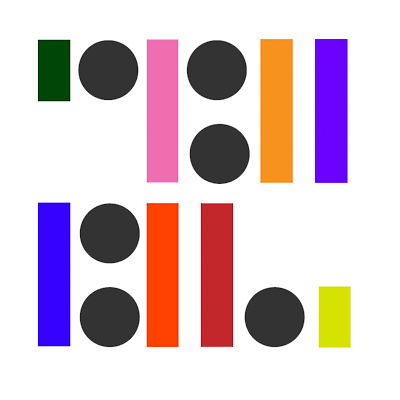the neural aesthetic
MACHINE LEARNING FOR ARTISTS
Machine learning is a branch of artificial intelligence concerned with the design of data-driven programs which autonomously demonstrate intelligent behavior in a variety of domains. Machine learning systems are all around us. When you deposit a check, scan your fingerprint, or post a picture on social media, autonomous algorithms are deployed on the spot to sift through and make sense of your constant interactions with our technology. Machine learning silently underpins the fabric of our digital infrastructure, discriminating spam e-mail and banking fraud, making light-speed transactions in the global financial market, recommending music and films for customers to buy, deciding what search results are relevant to your queries, and countless more of the daily interactions with electronic media that we take for granted. Machine learning is the backbone that powers self-driving cars, content recommendation in social media, face identification in digital forensics, and countless other high-level tasks. It has gained rapid interest from the digital arts community, with the recent appearance of numerous artistic hacks of scientific research, such as Deepdream, Stylenet, NeuralTalk, and others. Creative re-appropriation of these techniques is necessary to refocus machine learning's influence on those things which we care about. Artistic metaphors help clarify that which is otherwise shrouded by layers of academic jargon, making these highly specialized subjects more accessible to everyday people. Taking such an approach, we can repurpose these academic tools and harness their capabilities for creative expression and empowerment.
• 4 July - 29 July 2016
• four weeks, full-time in Berlin, Germany
• 10-15 participants accepted
• Based in ACUD MACHT NEU
Pricing
Artist / Student (Full Time)*
€1550
Professional*
€2050
course
description
This course will introduce students to the field of machine learning as a subject for artistic practice and interdisciplinary research.
Students will gain a practical and conceptual understanding of machine learning methods through the lens of creative subversion. Simple and deep neural networks will be introduced, analyzed, and applied within various artistic contexts.
Throughout the program, students will learn to program self-adapting musical instruments (using Wekinator), generative poems, and machine-hallucinated visual and sound art, mediated by intelligent algorithms. We'll examine the ethical and sociocultural dimensions of machine learning, and discuss the coming issues which are sure to be preceded by the ever-increasing integration of these thinking machines into our daily lives.
course outline
Week 1: Introductory Lectures
Week 2: Neural networks and real-time performance applications, Wekinator
Week 3: Deep learning, convolutional neural networks, and open questions
Week 4: Course projects and special topics
who is this class for?
This course is aimed at people working in creative disciplines who wish to learn about machine intelligence and how to apply it in their own fields. It is *not* aimed at scientists or engineers who are seeking a rigorous technical course on machine learning -- plenty of such classes already exist. Instead, no specialized knowledge of mathematics or computer science is assumed or expected of students, and we will build up our understanding of the subject from elementary building blocks, imagination, analogy, and metaphor. This course is more practical than it is theoretical; we are interested less in proving theorems and equations, and more into hacking existing tools for making machines that do interesting things. People of diverse backgrounds and interests will all find something to take away from this class. If you are a journalist interested in the socioeconomic ramifications of increased automation, a musician wanting to manipulate your instruments with data streams, a designer wishing to imbue your craft with machine artifacts, or you’re just plain old fascinated by the age-old philosophical dilemma of cognition, this class is for you.

